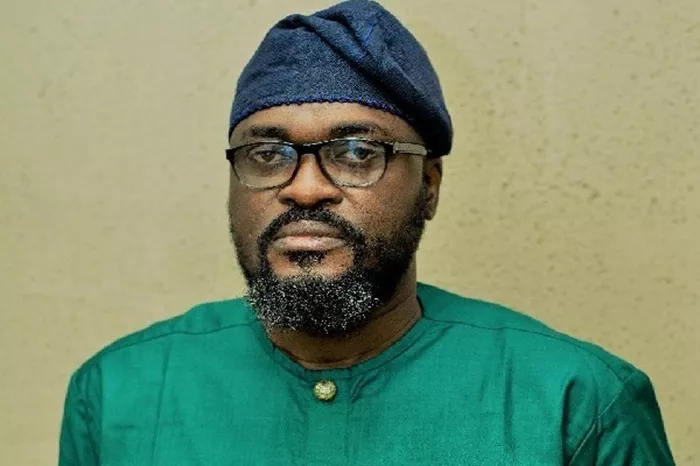Olatunji Ololade, the accomplished journalist and associate editor at The Nation, has finally released his much-anticipated debut novel, Of Gods and Their Claytoys. Known for his awards and in-depth reporting, Ololade brings his sharp observations and social consciousness to the world of fiction, drawing on his own experiences and the intricacies of Nigeria’s sociopolitical landscape.
The novel introduces Remilekun Balogun (RB), a journalist whose journey closely mirrors Ololade’s own. Both share a background in mass communication from the Ogun State Polytechnic, and both have earned recognition for their people-centered, risk-taking storytelling. While Ololade’s own life is marked by family and academic achievement, RB’s journey is one of loneliness and self-discovery, fueled by a troubled past and an uncertain future.
Written in a compelling blend of poetic prose and narrative intricacy, the novel traces RB’s turbulent path from an orphaned child to a conflicted journalist. Though he claims to have been an only child, RB’s backstory is complex. He knows neither his biological father nor the full truth about his mother, the woman he calls Mama, who instilled in him a belief that “black was the colour of bad things, of dirty, unwanted things.”
RB’s early life is marked by hardship. To finance his education, he juggles menial jobs and relies on the support of a friend. But the death of Mama forces him to face a world in which friendship is a luxury he cannot afford. As he matures, RB embraces journalism, only to find that the profession is rife with corruption and ethical compromises. The novel delves into the murky intersection of media and politics, exposing the underbelly of election-season journalism, where money flows freely, influencing coverage and distorting truth.
Ololade’s portrayal of journalists, many of whom are ensnared by the lure of financial gain, is stark. Senior colleagues in the newsroom, once revered by RB, reveal themselves as participants in racketeering, willing to compromise their integrity for material gain. Election seasons, often marked by an influx of money, offer lucrative opportunities for journalists, but at what cost to their ethical standards?
When RB witnesses a fatal altercation among journalists over cash handouts from a governor, he makes the daring choice to report the truth, igniting a firestorm that threatens his safety. His refusal to let the truth be buried triggers a series of events that lead to death threats, professional exile, and an unrelenting pursuit of stories that expose the nation’s systemic corruption.
The novel’s exploration of Nigeria’s socio-political landscape is as riveting as its focus on journalism. Nigeria in Ololade’s narrative is a country fraught with corruption, poor leadership, and decaying infrastructure. As ethnic divisions deepen, cities crumble under the weight of violence, and the line between friend and enemy becomes blurred. The ensuing chaos transforms ordinary citizens into fighters, and the country into a battlefield.
Despite the turmoil, Ololade suggests that Nigeria’s challenges are not easily solvable. The fragmentation of the country along ethnic lines is not a panacea for its ills. The narrative is a stark reminder that unity, rather than division, is the path to overcoming the nation’s struggles.
At the heart of the novel are a cast of remarkable characters. Chiamaka, a fierce feminist with a taste for life’s excesses; Mama, RB’s maternal figure who offers him grounding; Gbotie, a journalist with an unwavering commitment to truth; and Enitan and Alhaji, whose lives shape RB’s journey. These characters, each with their own complexities, add depth to a narrative that is as much about personal growth as it is about national identity.
Through vivid imagery, powerful allusions, and poignant prose, Ololade crafts a story that is both an exploration of journalism’s role in society and a meditation on the state of Nigeria. His novel is a call to action, urging readers to confront the systemic issues plaguing the nation and to seek solutions from within.
Of Gods and Their Claytoys is a tour de force that will resonate long after the final page. Ololade’s insightful commentary on Nigeria’s leadership, corruption, and political strife is both a reflection of current realities and a cautionary tale for the future. His work challenges readers to reflect on the country’s path forward and the individual responsibility to bring about meaningful change.
In conclusion, Ololade’s novel is an audacious, scathing critique of Nigeria’s systemic problems, one that prompts readers to confront uncomfortable truths. As the country continues to grapple with its challenges, Of Gods and Their Claytoys offers a powerful reminder that the solutions lie in the hands of its people, provided they are willing to confront the issues head-on.

